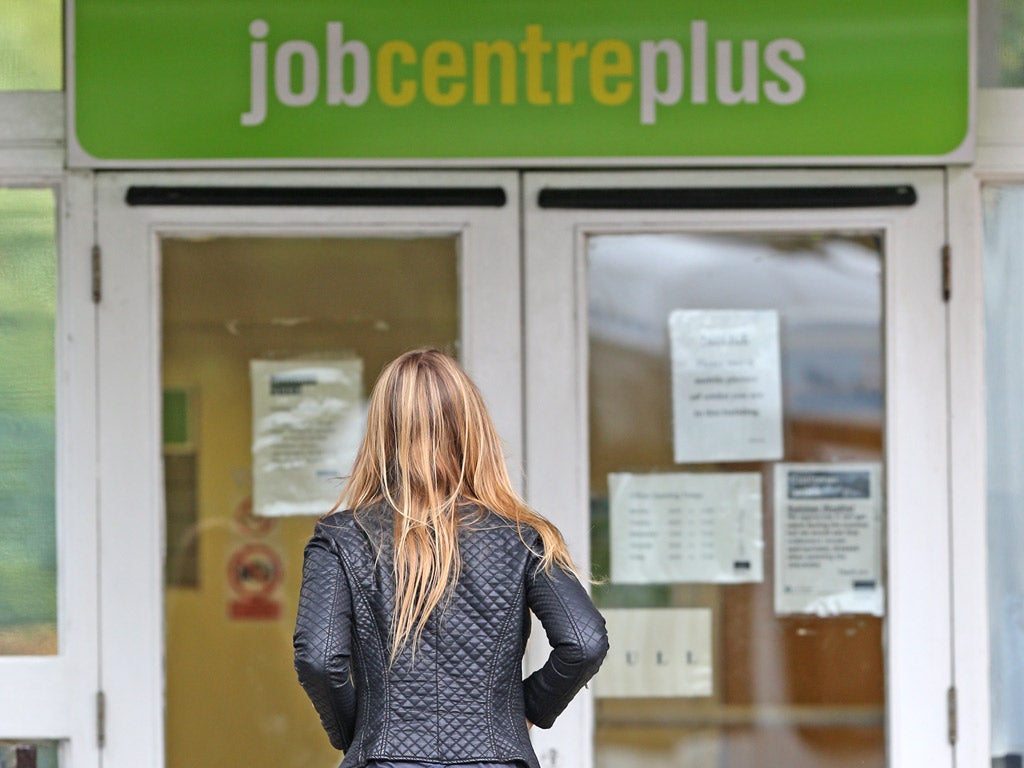Immigration jobs myths nailed by the British Chambers of Commerce as unemployment falls again
Most firms do not target foreign workers, and Theresa May’s prioritising of migration controls over EU single market access will not improve Britons’ job prospects

One of the most depressing features of the ongoing debate about immigration is the way even liberal-minded politicians fall prey to negative and damaging myths, promulgated by the extreme right and its allies.
Take the claims about incomers “taking our jobs” and the need to “take back control” of the number of people coming here to work to put British workers first.
This is still being thrown around at a time when official figures reveal that the rate of unemployment is very low. The latest, out this morning, reveal that it fell again in the three months to the end of July, from what was already a 42-year low (the tally stands at 1.46m, down 75,000).
It is often held that businesses based in Britain are too ready to hire from overseas to cope both with the recruitment problems this imposes, and to find a way around the “skills gap” that has for years plagued the British economy.
Shutting the door to people coming here to work from Europe would solve that problem, so the story goes. It would force them to hire and train up Brits!
Except that’s what they are doing.
A report by the British Chambers of Commerce (BCC) nails the claim that UK firms ignore local workers in favour of those from the EU and beyond.
According to its annual workforce survey, collated from the responses of more than 1,400 business people from all regions of the UK, 94 per cent of whom represent SMEs, only 8 per cent of firms actively target non-UK nationals when they have vacancies.
Far more seek to address shortages by increasing their investment in recruitment (48 per cent) in training (31 per cent) and by improving the pay and benefits they offer (29 per cent).
By the way, that last one? It does rather call into question another myth put about by the anti-immigrant right, one that has (sadly) found traction with parts of the left. It is that incomers depress wages. This suggests otherwise.
It is true that pay has been kept low in Britain, and wage rises are once again failing to keep pace with inflation. But there are several reasons for this: Britain’s low productivity is one. The squeezing of unions, robbing them of the power to collectively bargain settlements, is another. The abolition of institutions such as wages councils is a third.
The BCC’s study indicates that if incomers are playing a role in reducing pay, it is only a very small one.
Of course, there are areas where joblessness, and long-term joblessness, is considerably higher than the UK-wide picture, such as the north of England, which went strongly for Brexit, and where the problem of the “skills gap” is perhaps most strongly felt.
But the survey suggests that those who think that the employment prospects for communities that remain blighted by unemployment could be improved by a reduction in migration, and there are some Labour MPs of this mind, are liable to be disappointed.
Only a minority of companies (one in five) said restrictions on EU migration would prompt them to switch their focus to recruiting UK workers.
I’m not giving British business a pass here, by the way. It is still the case that business investment in this country is too low, that on-the-job training opportunities offered to workers are too often found wanting.
But if business could do more to address the issue, so too could government. The development of a skills gap is as much about its failure as it is about the failures of business.
As with many of the problems highlighted by the EU referendum, many, in fact most, of problems in the UK labour market can be traced not to Brussels but to Westminster. And, as ever, it has responded by seeking simple solutions to complex problems while targeting scapegoats.
Pointing out that a significant minority of British businesses say they will be damaged by new migration controls, Jane Gratton, head of business environment & skills at the BCC, had this to say: “While companies rarely target workers from outside the UK, the internet allows people from all over the world to see and apply for opportunities here. Many of our businesses benefit from having a diverse workforce with staff members from across the EU and beyond, bringing with them a range of skills sets.”
Indeed so. Unfortunately, with Britain already having cut off its nose to spite its face through the referendum, a small-minded Prime Minister at the head of a small-minded Government, seems intent upon stabbing at an open wound.
Join our commenting forum
Join thought-provoking conversations, follow other Independent readers and see their replies
Comments
Bookmark popover
Removed from bookmarks